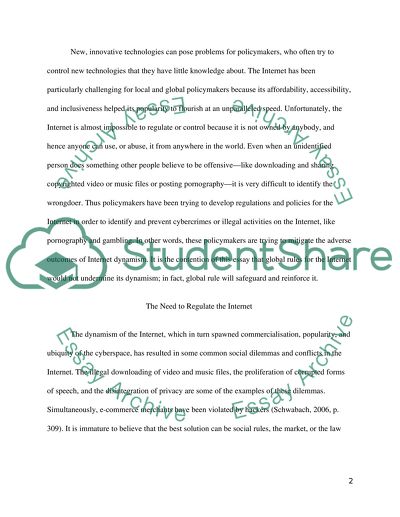Cite this document
(“The Global Governance of the Internet Essay Example | Topics and Well Written Essays - 2000 words”, n.d.)
The Global Governance of the Internet Essay Example | Topics and Well Written Essays - 2000 words. Retrieved from https://studentshare.org/history/1469379-would-global-rules-for-the-internet-undermine-its
The Global Governance of the Internet Essay Example | Topics and Well Written Essays - 2000 words. Retrieved from https://studentshare.org/history/1469379-would-global-rules-for-the-internet-undermine-its
(The Global Governance of the Internet Essay Example | Topics and Well Written Essays - 2000 Words)
The Global Governance of the Internet Essay Example | Topics and Well Written Essays - 2000 Words. https://studentshare.org/history/1469379-would-global-rules-for-the-internet-undermine-its.
The Global Governance of the Internet Essay Example | Topics and Well Written Essays - 2000 Words. https://studentshare.org/history/1469379-would-global-rules-for-the-internet-undermine-its.
“The Global Governance of the Internet Essay Example | Topics and Well Written Essays - 2000 Words”, n.d. https://studentshare.org/history/1469379-would-global-rules-for-the-internet-undermine-its.


